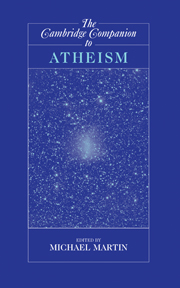2 - Atheism in Modern History
from Part I - Background
Published online by Cambridge University Press: 28 January 2007
Summary
In October 1632, the small town of Loudun in mid-France was convulsed by the belief that the nuns of the town's Ursuline convent were possessed with devils. Over the following months and years, as the cries and shrieks of the unfortunate nuns became ever louder and their bodily writhings more obscene, Loudun became a place of celebrity as a procession of priests, doctors, politicians, and tourists came to witness the extraordinary spectacle for themselves. The possession was not shortlived, and the execution of the supposed sorcerer, the parish priest Urbain Grandier, did not bring the closure that some hoped it would. The exorcisms of priests and the ministrations of doctors were to little effect, and there seemed to be no hope of deliverance until the arrival of the saintly Father Jean-Joseph Surin in Loudun in December 1634. Within a few months, the mother superior, Jeanne des Anges, was delivered from her demons, although the last devil was not reported to have departed until 1637.
In his extended study of this remarkable episode, the French historian Michel de Certeau is not so facile as to provide a definitive (or even provisional) “explanation” of these happenings. But he does interpret them as, among other things, a “symptom” of a trauma – what might be described as the trauma of the birth of modernity. He says that the “diabolical crisis” (of which the Loudun possession was just one instance) “is not merely an object of historical curiosity. It is the confrontation (one among others, though more visible than others) of a society with the certainties it is losing and those it is attempting to acquire.” One of the certainties this society is losing is that of theism, and de Certeau sees in the possession an indirect expression of a repressed anxiety and fear of doubt and blasphemy. Such doubt was becoming a common feature of society at this time, with atheism emerging as a recognized phenomenon, in a way that was unknown a century earlier.
- Type
- Chapter
- Information
- The Cambridge Companion to Atheism , pp. 27 - 46Publisher: Cambridge University PressPrint publication year: 2006
- 6
- Cited by



